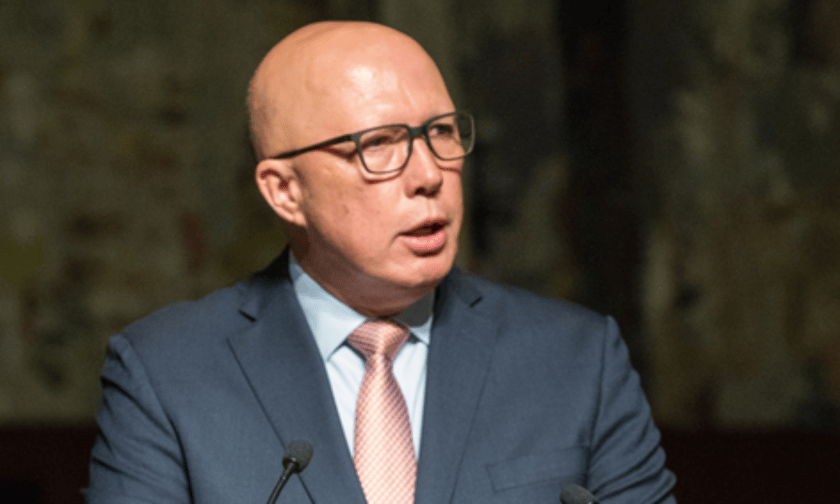

By
Image Source: M Chan, CC BY-SA 4.0 <https://creativecommons.org/licenses/by-sa/4.0>, via Wikimedia Commons
Australia’s opposition Liberal Party has launched its election campaign with a focus on addressing rising living costs and the worsening housing crisis.
Opposition leader Peter Dutton outlined the party’s key priorities during a rally in Melbourne on Sunday, presenting policies aimed at tackling voter concerns ahead of the federal election, which is due by May 17.
In his speech, Dutton criticised the state of the economy under Prime Minister Anthony Albanese’s Labor government, pointing to rising prices and interest rates, which have climbed to a 13-year high of 4.35%.
“Australians are living through the worst collapse in living standards on record. Everything is costing more – food, rents, mortgages, power and insurance,” Dutton said.
The Liberal Party’s proposals include measures to reduce housing costs, such as a two-year ban on foreign investors and temporary residents buying existing homes, a 25% cut to permanent migration over the next two years, and stricter caps on international students at metropolitan universities.
A $5 billion fund for infrastructure development to support new housing construction is also on the table.
On energy, Dutton reiterated his party’s commitment to increasing domestic gas production and transitioning from coal-fired power plants to nuclear energy. This follows the Liberal Party’s previous proposal for a $331 billion taxpayer-funded nuclear power industry, a move that contrasts with recommendations from Australia’s top scientists who advocate for the cost-effectiveness of renewable energy sources like wind and solar.
The opposition also outlined broader goals, including support for small businesses, investment in regional communities, defence, and healthcare, alongside plans to audit Indigenous programs and cut government spending.
Dutton promised further policy announcements in the coming weeks as the party seeks to capitalise on growing voter dissatisfaction with the government’s handling of the economy.
